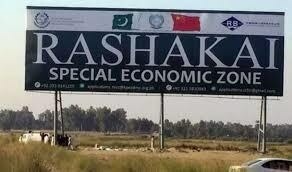Pakistan has accepted a key condition set by the International Monetary Fund (IMF) under the pending $7 billion Extended Fund Facility (EFF), agreeing not to establish any new Special Economic Zones (SEZs) or Export Processing Zones (EPZs) and to discontinue tax incentives for existing zones after their expiration.
According to a news report, this decision is expected to have immediate consequences, particularly for the government’s plans to develop an export processing zone on the land of the defunct Pakistan Steel Mills (PSM).
The IMF’s condition applies to both federal and provincial governments, but Khyber-Pakhtunkhwa has opposed it.
Despite the government implementing a range of harsh measures, including raising Rs1.8 trillion in new taxes and increasing electricity prices by up to 51%, Pakistan has not yet secured a date for the IMF’s executive board approval of the bailout package.
SEZs and EPZs are usually granted special tax and business incentives to attract commercial activities. However, the new condition will prevent the establishment of new zones and restrict the extension of incentives for existing ones.
This has sparked concern, particularly in Khyber-Pakhtunkhwa, where the provincial government views such zones as essential for attracting industries and promoting economic growth.
Muzammil Aslam, Adviser on Finance to the Chief Minister of Khyber-Pakhtunkhwa, argued that the IMF should not dictate provincial policies, especially when industrial expansion is a provincial subject.
“Even in developed countries, states have different tax policies, and provinces must compete through infrastructure and taxation,” he said.
The government has also agreed not to provide any new fiscal incentives for new or existing economic zones and not to renew existing ones. Under the SEZ Act, investors are currently entitled to tax exemptions and other incentives, but these will not be extended.
This development is expected to impact several planned SEZs, including the Industrial Park on PSM land, Mirpur Industrial Zone, and others under the China-Pakistan Economic Corridor (CPEC) initiative.
The IMF condition may also strain relations between Pakistan and China, as the country has been keen to attract Chinese industries to these zones in the second phase of CPEC.
























